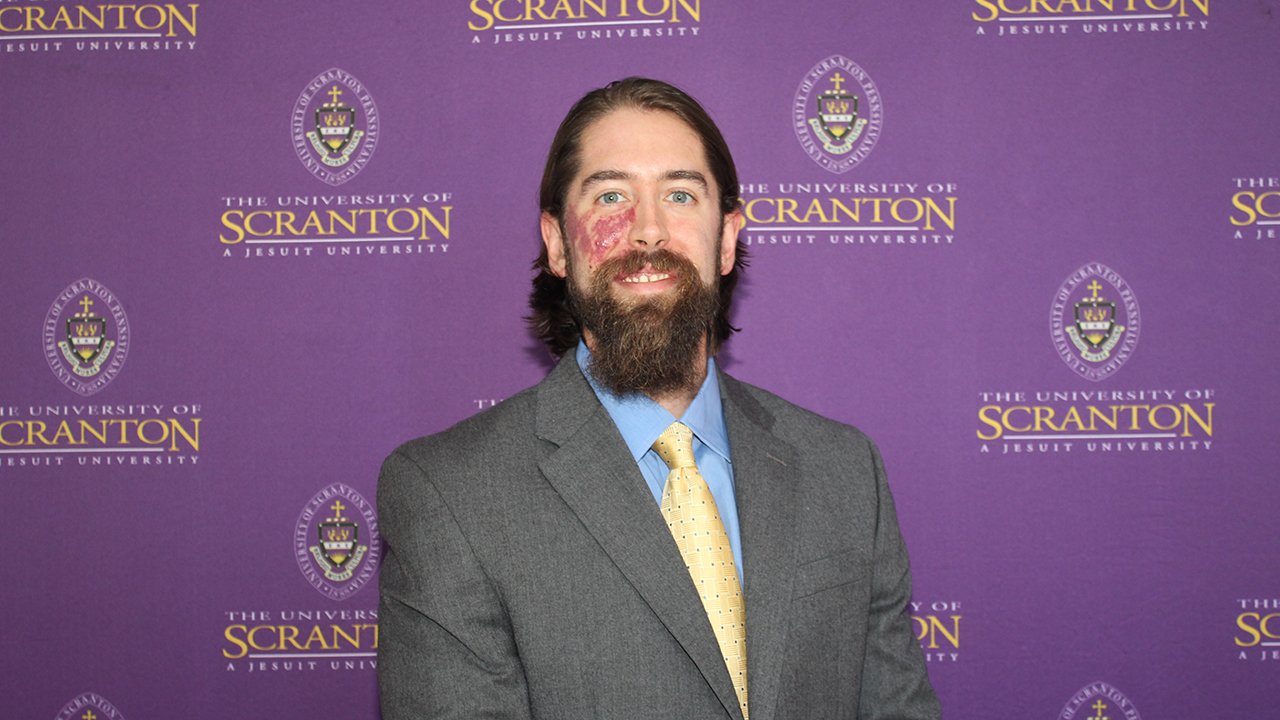Research Spotlight: Andrew Venezia, Ph.D.

Dr. Andrew Venezia, an assistant professor in the Department of Exercise Science, is a neuroscientist and exercise physiologist. He joined the Scranton faculty in 2016 after earning his Ph.D. in neuroscience and cognitive science from the University of Maryland. Prior to his doctoral studies, he earned his bachelor’s and master’s degrees in Exercise Science from Bloomsburg University of Pennsylvania.
Dr. Venezia studies the influence of physical activity on cognitive function and is specifically focused on understanding the mechanisms that underlie beneficial changes to brain function in response to physical activity and exercise. Dr. Venezia began investigating the impact of long-term exercise on cognitive function in older adults. He later transitioned into investigating cellular and molecular adaptions in the rodent brain following chronic exercise, acute exercise, and in utero exercise exposures. Most of his research has focused on the hippocampus, a brain region that is uniquely sensitive to the effects of physical activity and is important for learning, memory, and emotion.
Currently, Dr. Venezia is primarily interested in the immediate and delayed effects of acute high-intensity exercise on hippocampal plasticity, memory, and mood. Research in humans suggests that acute exercise has small but positive effects on memory; however, the optimal intensity, mode, and timing of exercise relative to the learning experience remain undetermined. Dr. Venezia’s research in rodents suggests that the mechanisms of hippocampal plasticity are initiated immediately after a single bout of exercise. Interestingly, the mice in these investigations displayed anxiety-like behavior immediately after acute exercise and were unwilling to complete tasks designed to test memory. Although he is hesitant to consider this behavior “anxiety," new research by Dr. Venezia and students at Scranton suggests that college students display higher levels of anger, restlessness and depression when they complete a cognitive task after exercise compared to the same task performed after rest. Preliminary data from two student-led projects suggest that this effect is observed following both resistance training and cycling exercise.
These data were presented by two University of Scranton undergraduate students at the annual meeting of the Mid-Atlantic Regional Chapter of the American College of Sports Medicine in November 2019. Dr. Venezia has four ongoing projects at Scranton as well as one active collaboration with researchers at the University of Maryland. Two of these projects are being led by students from the honors program and one project is funded by an Internal Research Grant. These studies will further our understanding of how acute high-intensity exercise affects cognitive function and mood. Since joining Scranton in the fall of 2016, Dr. Venezia has published four peer-reviewed articles. In addition, Dr. Venezia was the lead author of a chapter in the recently published Routledge Handbook of Sport and Exercise Systems Genetics. This chapter detailed the ethical considerations of using genetic testing for talent identification, another of Dr. Venezia’s long-standing research interests.






